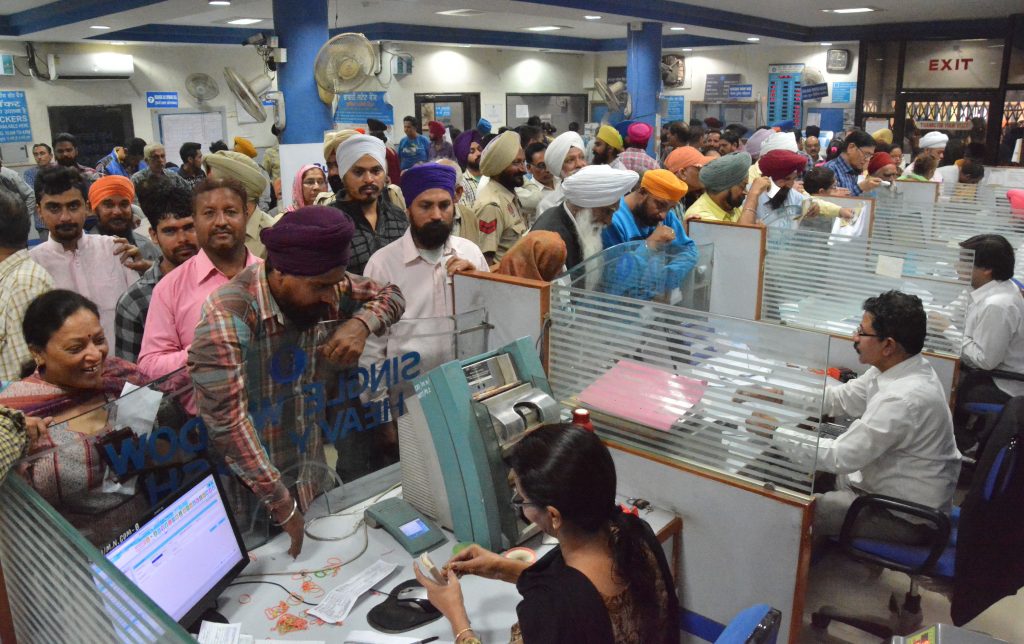
A report says the banks collected over Rs 35,000 crore since 2018 on account of penal charges for non-maintenance of minimum balances, additional ATM transactions, and SMS services
Having a bank account is crucial for sound financial management. There is no one right bank account for every person. Choosing the right bank starts with knowing your bank usage and individual preferences. However, equally important is knowing hidden bank account charges and tips on avoiding some like a pro!
This becomes all the more important when we take into account that banks collected over Rs 35,000 crore since 2018 on account of penal charges for non-maintenance of minimum balances, additional ATM transactions, and SMS services. Significantly, Bhagwat Karad, Minister of State for Finance, shared data figures collected from public-sector banks and major private sector banks, including Axis Bank Ltd., HDFC Bank Ltd., ICICI Bank Ltd., IndusInd Bank Ltd. and IDBI Bank Ltd in the last five years.
These banks collected Rs 21,044.4 crore on account of non-maintenance of the minimum bank balance, Rs 8,289.3 crore for additional ATM transactions, and Rs 6,254.3 crore from SMS services. With effect from April 1, 2015, banks are permitted to fix reasonable penal charges when it comes to the non-maintenance of the minimum bank balance in savings accounts, according to the Reserve Bank of India’s master circular on customer service in banks.
The RBI circular said banks were required to put in place a system of online alerts for all types of transactions. However, in order to ensure reasonableness, the central bank has advised banks to ensure that such charges were levied to customers on an actual basis. Regarding ATM transactions, banks offer savings-bank account holders a minimum of five free financial transactions in a month irrespective of the location, according to the RBI’s updated ATM guidelines as of November 2022. For financial transactions from ATMs of other banks, customers are also eligible for three free transactions in metro cities and five from non-metro locations in a month.
How to avoid bank charges?
Here are the top eight hidden bank account charges you should know about and tips on avoiding some like a pro!
Account maintenance fee
One of the widespread hidden bank account charges that banks charge from their customers is the account maintenance fee. This is a monthly fee that is deducted from the accounts every month. The charge amount is usually allocated towards funding the human and tech resources used to maintain the accounts.
Minimum balance fee
Another significant change you might learn about is the minimum balance fee. This is charged when the account balance exceeds the minimum required balance. The fee helps banks to maintain regulatory requirements. However, fortunately, only some banks charge this fee. So, if you are looking for banking options, keep an eye on this charge.
The RBI circular permits banks to fix penal charges regarding non-maintenance of minimum balance in savings accounts, as per their Board approved policy, while ensuring that all such charges are reasonable and not out of line with the average cost of providing the services. Further, RBI advised banks “to ensure reasonableness and equity in the charges levied by banks for sending SMS alerts to customers and to leverage the technology available with them and the telecom service providers to ensure that such charges are levied on all customers on actual usage basis”.
Online banking fee
Even with the world moving towards complete digitization, many banks still charge for their online banking or remote banking services as one of their bank account charges. Online banking isn’t something that can be avoided since it gives you the flexibility and convenience of accessing your account 24/7 from anywhere. You can either find a bank offering online banking facilities free of cost or find payment service providers as an alternative to traditional banks to avoid this fee.
Overdraft fee
If you withdraw money from the account when there are insufficient funds for the transactions, your transaction is covered by an overdraft. However, you are charged a fee for every overdraft, which can become quite expensive for a student. Almost all banks charge overdraft fees, among other bank account charges. However, fortunately, many banks offer unique benefits including overdraft bonuses, incentives, and low overdraft fees. Other benefits, like 0-interest overdrafts, can also compensate for the fees. So, check out the bank’s overdraft policies carefully while looking for banking options.
Inoperative bank accounts fee
Not using your bank account for a stretched period of time can enable your bank to charge you an inactivity fee along with other bank account charges. Depending on your bank’s policies, this idle period can be anywhere between 1 year to 5 years. For example, you open an account but abandon it since you decided to go with a new bank account. However, you suddenly start using the account after three years of inactivity. In this scenario, the bank will charge fees for the inactivity period. If you have money in an inactive account, the bank will automatically deduct various bank account fees from your money.
So, how exactly do you avoid this fee? Just keep using the bank account. Make sure you are making transactions regularly, and you should be safe from one of the most common hidden bank account charges! If not, it is better to pull your money out of the bank account or close the account if you plan on not using it anymore. This way, you can make sure the bank doesn’t charge you any bank account fees automatically.
Statement fee
Checking your bank statement? You might get charged a small fee for it. The fee is justified by the cost of paper and the printing of your statement receipt. Fortunately, this charge can be easily avoided by any account holder. Since online banking options are popular and you can retrieve your bank statement digitally, the paper-printed statement fee is wholly eradicated. You can also use payment service provider apps to retrieve your bank statement digitally without any hassles or additional fees.
Debit card fee
Usually, banks charge multiple types of fees for debit cards. If you don’t have a debit card and are applying for one, you will be charged for a new debit card. Similarly, if your debit card expires, you are charged a renewal fee for a new card. In case of loss or theft of the debit card, banks charge you a small fee for blocking your old card and then replacing it with a new one. Many banks also charge their customers annual or quarterly debit card fees, account service, and maintenance fees.
ATM transaction fee
Another one of bank account fees that banks may charge you is ATM transaction fees. Depending on your bank’s policies, this is charged for every transaction or after a specific number of transactions. Banks might charge this fee for excessive transactions and transactions after you have crossed your transaction limit. This fee also includes the printing cost of the transaction receipt that you may take after your transaction. Avoid this and opt for paperless, digital receipts to eradicate this small fraction of the transaction fee.
In June of last year, the RBI granted banks permission to charge up to Rs. 21 per transaction at an ATM (Automated Teller Machine) in addition to the monthly free transaction cap, beginning on January 1, 2022. According to the RBI circular dated June 10, 2023, “Customers are eligible for five free transactions (inclusive of financial and non-financial transactions) every month from their own bank ATMs. For financial transactions from ATMs of other banks, customers are also eligible for three free transactions in metro cities and five from non-metro locations in a month.
However, there are ways to avoid paying your ATM fees, such as using your own bank’s ATM, finding a partner ATM, or using an account that refunds ATM fees. It should be noted that transactions include financial and non-financial transactions at ATMs.












